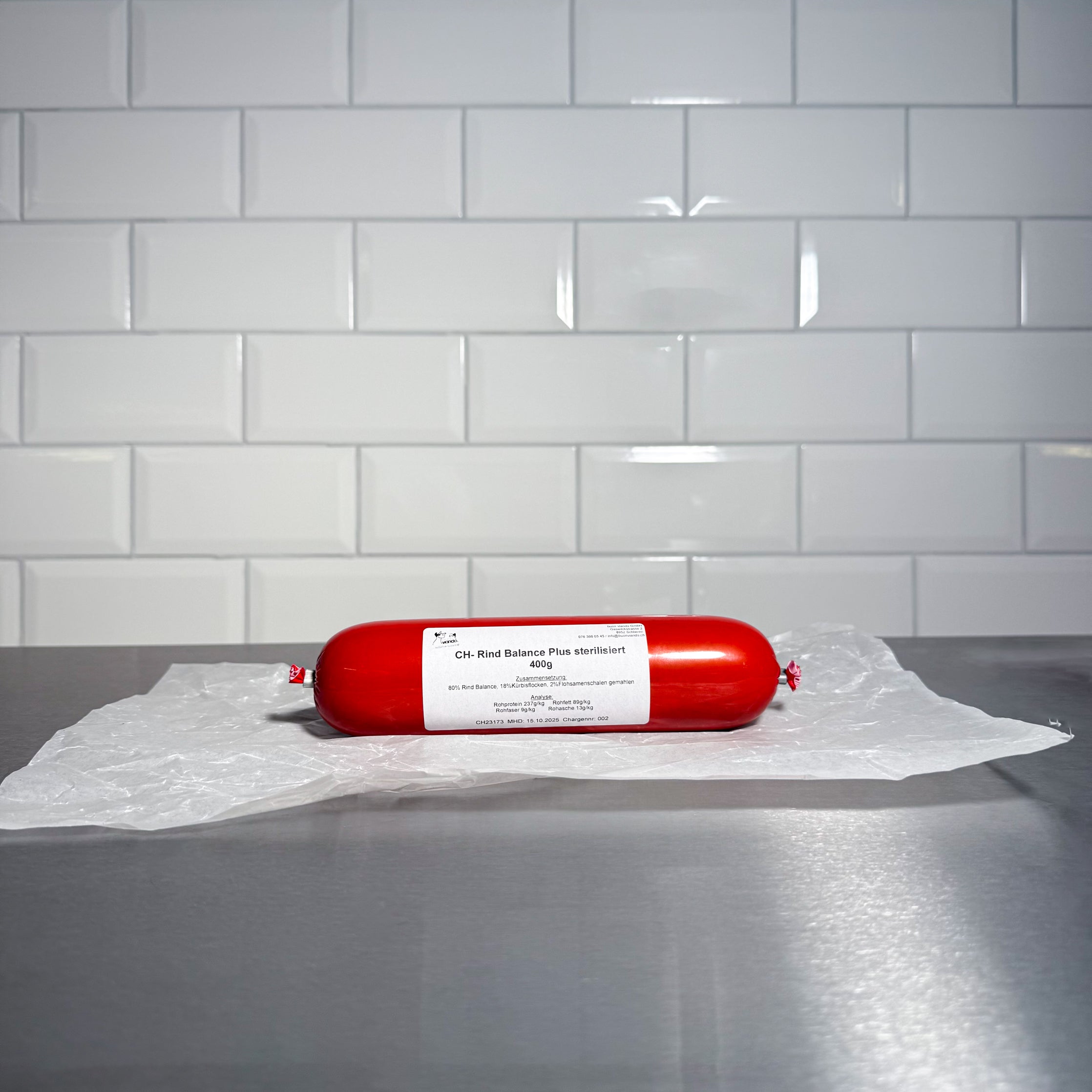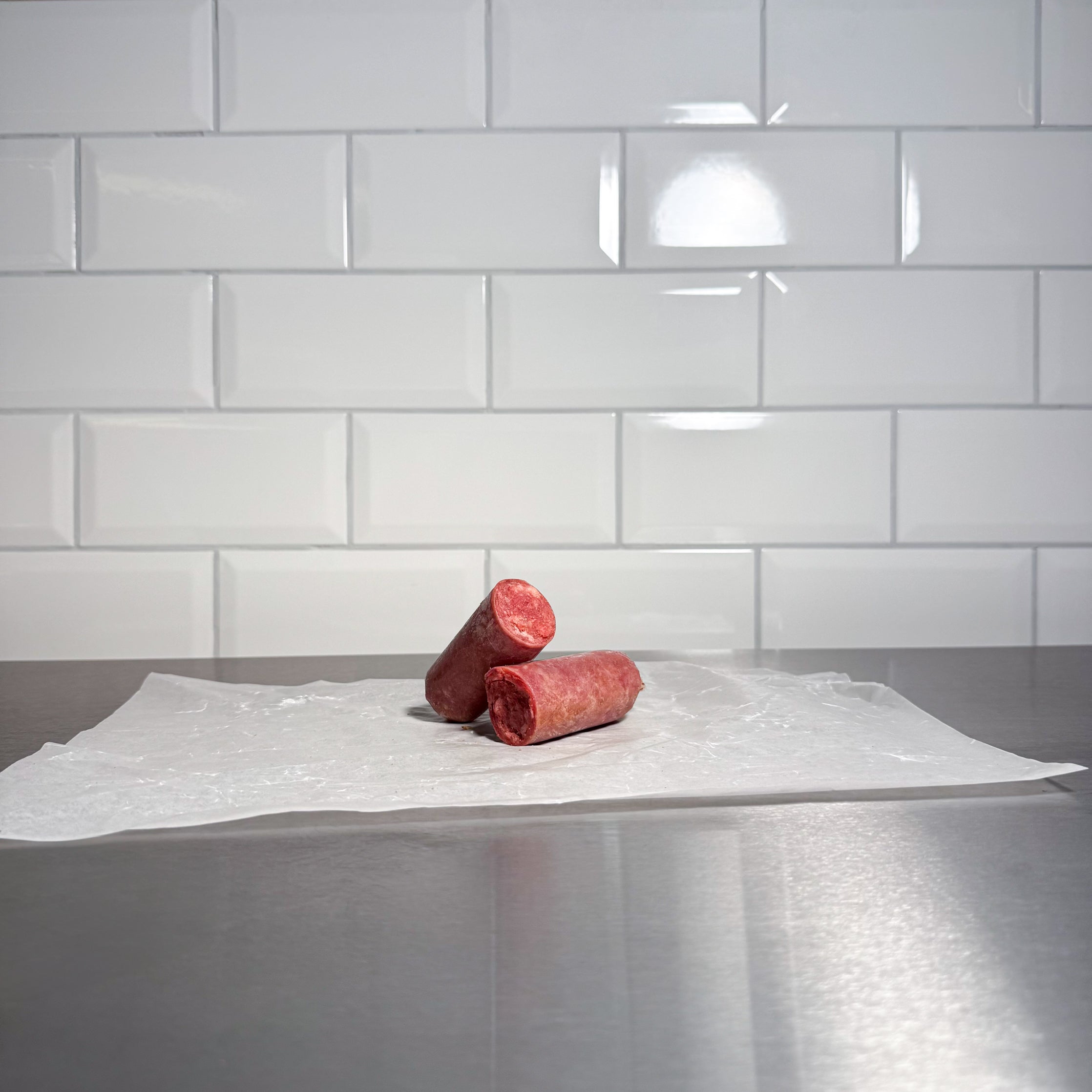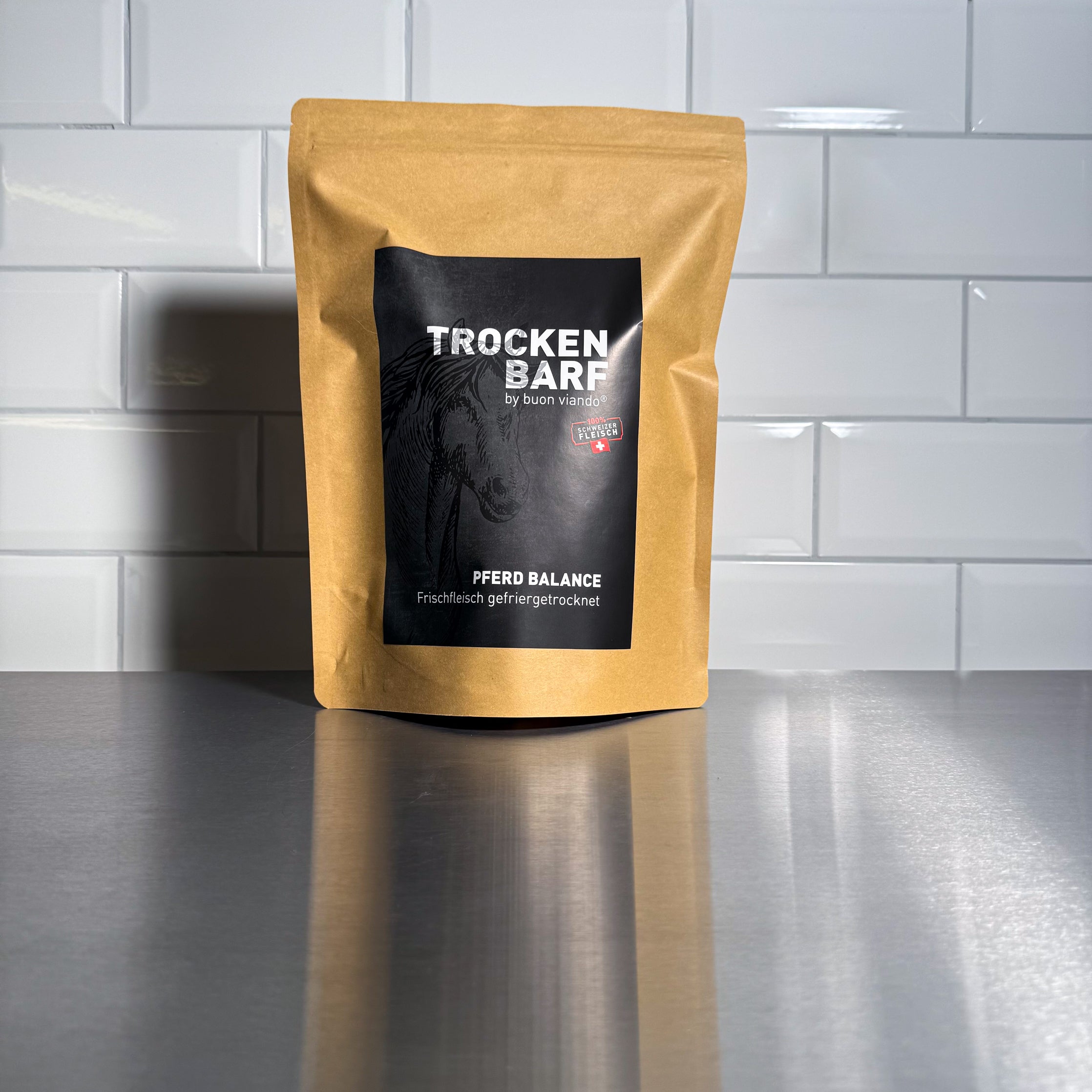Eggs in dog food – raw, cooked, or just the yolk?
Eggs are a true nutritional bomb – also for dogs and cats. They provide high-quality protein, valuable fats, vitamins, and minerals. But as is often the case with raw feeding, not everything belongs in the bowl raw. Especially with eggs, it's worth taking a closer look at the details.
Raw egg yolk – yes, please!
The egg yolk can be fed raw. It contains important vitamins such as A, D, and E, as well as biotin, omega-3 fatty acids, and high-quality fats. It's easily digestible for our four-legged friends and a great addition to the BARF diet – naturally supporting skin health and ensuring a shiny, strong coat – a real beauty boost in your dog's bowl!
Egg white? Just be careful!
Never feed egg white raw. It contains avidin, a protein that binds biotin. Regularly feeding raw egg white can lead to a biotin deficiency. The consequences? Possible skin and coat problems, as well as a weakened immune system. Therefore, please only use the raw yolk.
Cooked is safe
If the egg is fully cooked, the avidin in the egg white is destroyed – and the entire egg is easily digestible for the dog. Cooked eggs (hard/soft/poached or fried) can therefore be offered as a treat or as a supplement to the BARF diet.
-> For us, a breakfast classic – for the dog, please, no frills: The egg belongs unsalted in the bowl!
How often can my dog have eggs?
1–2 eggs per week are completely safe for most dogs. For smaller breeds, fewer eggs are acceptable; for larger dogs, it can sometimes be a whole egg extra – individually adjusted to their needs.
Conclusion:
Eggs are a valuable part of a dog's diet – provided they are used correctly. Raw egg yolk is allowed, but egg whites should only be cooked. With a little knowledge, the breakfast egg becomes a healthy BARF component.
Eggs: A healthy additon for my dogs meal?










